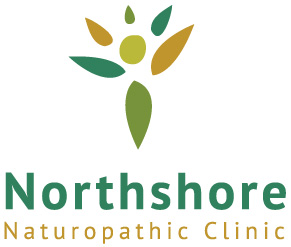By Dr. Jonn Matsen, ND
With the addition of oxygen, our Phase I liver enzymes turn phenols (fat-soluble chemicals) into peroxides in the attempt to make them water-soluble. These peroxides are not good for our heath and are present in most people with chronic health problems.
The main source of these phenols is yeast (Candida) living within our intestine. Yeast is a member of the fungus family and a normal part of your intestinal track. Their job is to turn you into compost when you’re dead. Being resistant to acidity, yeast can be found hanging out in the nooks and crannies of your large intestine where the pH is acceptably alkaline. The good defenders which work hard to keep yeast at bay are billions of acidophilus bacteria.
When our colons pH is out of balance from ingesting things like; antibiotics, mercury, antacids, etc. yeast is given the go ahead to multiply, beginning the composting process while you’re still alive. Once they are active, cravings for sugars and chocolate increase.
Another way yeast becomes active is when your ileocecal valve is weakened. I know, you’re probably relieved because you don’t think you have one of these, but you do. The ileocecal valve is located between your small and large intestine. Its purpose is to act as a gate, keeping the food you have eaten in your small intestine long enough to be digested and absorbed completely. It also prevents the micro-organisms in your large intestine from getting into your small intestine, where waste products are easily absorbed. When digestion is complete in the small intestine the ileocecal valve opens, allowing food to pass on through to your large intestine for illumination.
When your ileocecal valve is weakened our good bacteria from the large intestine get through the valve and up into your small intestine where they turn into the bad guys, steeling nutrients from your food before you have finished the digestive process, and dump toxins into your liver. Once your good bacteria become bad, yeast soon join the party and multiply.
Calcium helps to strengthen the ileocecal valve, so when we are low on it for more than five days the valve weakens. To be sure that your body is able to absorb calcium, you must be getting enough vitamin D: vitamin D stimulates your intestinal cells, producing a calcium-binding protein, thus increasing your absorption of calcium.
When you are exposed to the sun, your body makes vitamin D and then stores it in an inactive form in your liver. When the vitamin D is released from your liver storage it converts it into a weak form of vitamin D. As long as you’re getting enough regular sun, this amount will be sufficient. The kidneys then convert this weak form of Vitamin D into a much stronger form, improving calcium absorption by up to 1,000 times. This is especially crucial for wintertime, when the sun in our skies is minimal.
Calcium is regulated by your kidneys altering the activation of vitamin D with the changes in the seasons by monitoring the ions in the foods and beverages you consume. The sodium/potassium ion ratio determines your kidneys activation of vitamin D.
Did you know that your body contains 3% sodium, which is similar to that found in the ocean and in animals, and your kidneys maintain a 50/50 ratio of sodium at all times? This means that your kidneys need to work extra hard to eliminate the excess, giving you a warming affect making you more active, and when you have an excess of potassium this creates a cooling affect and slows you down. So for example, when you eat a banana, which is high in potassium, your body thinks it is full sun and therefore shuts down the production of vitamin D, affecting your calcium absorption. Within five days, this process can cause your ileocecal valve to weaken, allowing billions of good bacteria to enter your small intestine, where they transform into ‘bad guys’.
The ileocecal valve problem is very common in those whom eat too well! Meaning, when you consume too many foods and drinks high in potassium, and don’t consume enough sodium in the form of animal protein or salt, this confuses the kidneys into assuming you are in the hot sun and therefore deactivates your vitamin D. Eating with the seasons will not cause this confusion and allows your body to regulate it’s self and keep you in balanced health.


